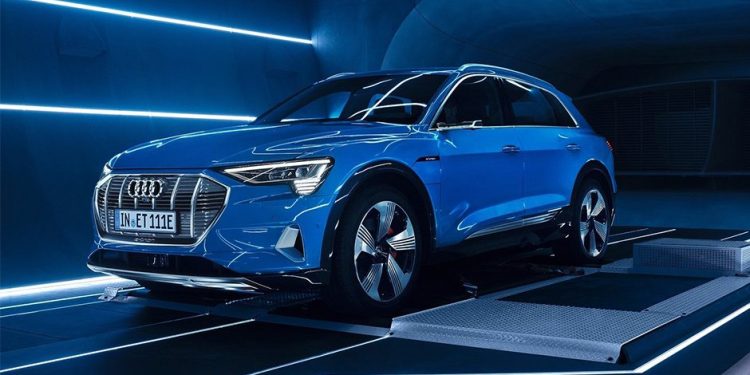Revealed: NZ’s top five best selling electric cars of 2020
While our outright domestic registration figures for new-car sales were well down in 2020, sales of hybrids, plug-in hybrids, and EVs weren’t as affected. In fact, hybrid sales increased significantly. This is in line with global trends that saw electrified cars charge through the Covid-19 pandemic (pun not intended) almost unabated.
With electric cars continuing to gather momentum locally, It’s been interesting plotting what’s been hot and what’s been … not. Three Porsche Taycans were registered last year, and a credible 53 Mini Cooper SEs were released out into the wild, too — making it more popular than the BMW i3, Kia Niro, and Hyundai Ioniq.
Without further adieu, here’s the five best-selling models locally for 2020.
5. Audi e-tron (81 registrations)

As the only definitive premium EV in the top five, Audi will be proud to have its name among this mainstream company while simultaneously out-selling the Mercedes-Benz EQC (37 registrations) and Jaguar I-Pace (62 registrations).
What’s also worth noting is that Audi has reportedly struggled more with supply than most of its Euro-based rivals, according to NZ Autocar sources, which gives the e-tron’s success an extra kick. Be on the lookout for next month’s e-tron GT unveiling, and the local arrival of the e-tron S later in 2021.
4. MG ZS EV (118 registrations)
There’s a lot to be impressed with here with MG’s entry — the cheapest EV on sale in New Zealand. For one, the brand has only just been re-launched locally with a limited network. And, perhaps more curiously, all of the ZS EV’s registrations come from the last two months of the year.
Now, it’s not quite as simple as taking those two months and multiplying them by six to get a 2021 projection (if that were to come to fruition, it would shoot to the top of this list by a mile!). A lot of that early interest was driven by an aggressive introductory offer. But, with that offer having been recently gazumped by a new, even lower retail price, expect the ZS to be a very handy seller in 2021.
3. Nissan Leaf (142 registrations)

Even with the tsunami of current-shape Japanese import Nissan Leafs flowing into the country, Kiwi-new versions still sold in solid volumes last year. The Leaf comfortably outsold its similarly priced Hyundai Ioniq rival last year by a factor of more than three.
It’s ageing slightly these days, which hopefully means a grand update is coming down the pipes (with a bit more range too, please Nissan).
2. Hyundai Kona Electric (236 registrations)

And now the top definitively mainstream EV seller of the year; the Hyundai Kona Electric. Though it’s $78,990 opening sticker raised a couple of eyebrows when it was launched, the Kona has proven itself to be a popular thing — particularly among fleet buyers.
A beefy update to the model was unveiled last November, sporting very different looks and boosted range (484km on the WLTP cycle, up from 400km). Expect the Kona Electric’s sales to keep going strong as the new model approaches our shores for launch later in the year.
1. Tesla Model 3 (511 registrations)

No surprises here. The Tesla Model 3 continued to be a juggernaut locally, with over double the registrations of the next best-selling electric car. It’s an undoubtedly impressive vehicle, and local sales could grow further following news that local supply is set to be bolstered by Chinese production.
There is a slight caveat here, though. The Model 3’s sales came very much at the expense of every other model in the manufacturer’s line-up. Just 27 and 55 Model S and Model X’ were registered locally last year. One wonders whether the arrival of the Model Y will shut down Model 3 sales in similar fashion.





